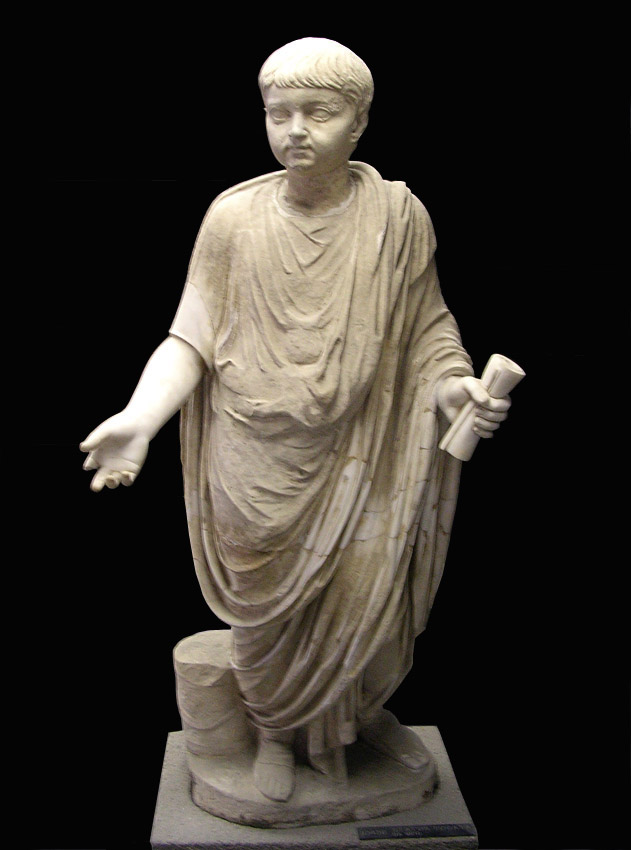It happened today - February 11, 2016
 There are all kinds of ways to draw a short straw at birth. You can be born in a war zone, or a disease-ravaged impoverished hell-hole, have a deadly congenital ailment or be the son of a Roman emperor,
There are all kinds of ways to draw a short straw at birth. You can be born in a war zone, or a disease-ravaged impoverished hell-hole, have a deadly congenital ailment or be the son of a Roman emperor,
Whoa, you say. The last one sounds pretty good. Slave girls peeling you grapes, obsequious centurions, marble everywhere. Well, yes. But also daggers, cords, poisons and relatives.
I have in mind in particular the hapless, or at least highly unfortunate “Britannicus,” formally Tiberius Claudius Caesar Britannicus, son of the emperor Claudius who, I indicated recently (in my January 25 2016 “It Happened Today”), I hope really was the clever and decent man described by Robert Graves and not the vicious half-wit his enemies depict. And his problem was that he was at an Imperial court so riven by intrigue that Claudius had to have his own wife executed for plotting to assassinate him. His third wife, that is.
This particular spouse, the evidently loathsome Valeria Messalina, had actually married someone else while still married to Claudius, one Gaius Sillius, and convinced Sillius to adopt Britannicus as part of a plot to do in Claudius then rule jointly as regents. (Who needs soap operas when you have this in real history, I ask?)
After Messalina and Sillius paid what seems a just price for their treacherous folly, Claudius himself felt obliged to marry again, because with Britannicus being about eight at this point Claudius’ lack of an adult son left him even more than usually vulnerable to being bumped off. His choice, in a tight spot, was the scheming and sinister Agrippina the Younger, great-granddaughter of Augustus and thus a relative of Julius Caesar himself, and to adopt her son, of whom you may have heard bad stuff. Nero.
Claudius made Nero joint-heir with Britannicus until the latter came of age, which among the Roman elite happened at 14. Guess who died at 13 on February 11 of 55 AD.
Right. Britannicus. Not four months after Claudius, both poisoned in a court whose intrigues, adulteries, betrayals and endless killings would have left the Borgias slack-jawed with envy. Agippina herself came to an obscure end generally blamed on Nero in accounts impossible to credit even given the times. But if she was indeed murdered by her own son, it served her right.
Like lots of people in this story she behaved very badly and like many of them she had at least some choices. As for poor Britannicus, as far as we can tell he played his part bravely and skilfully. But it was a hopeless part.
There are certainly worse starts to life than being the son of a Roman emperor. But sometimes it, too, can be an insurmountable disaster. So remember, if you weren’t born with a lot of advantages but did escape immediate catastrophe, consider summoning the shade of Britannicus to tell you it may have been a considerable blessing in disguise.